Wangcheng in heaven
Wangcheng in heaven
Tianwangcheng Scenic Area is located 40 kilometers northwest of Yishui County, Linyi City, Shandong Province. The main part of the Scenic Area is located in Jiwanggu. It is the national AAAA scenic spot and the top ten cultural industry projects in Shandong Province.
According to legend, King City of Heaven is named for "Ji Hou Goes to Stay here in the State". Ji Wang Gu is 577.2 meters above sea level, with a wide top, an area of about 4 square kilometers, and a long distance from north to south. It is the only person living in Yimeng 72 Gu, so it is known as "the first of Yimeng 72 Gu". There are still more than 30 historic sites such as the ancient city wall, flagpole nest and cochineal spring.
In April 2014, the Tianwangcheng archaeological project "Jiwang Guchunqiu Tomb" was named "Ten New Archaeological Discoveries in China".
Main attractions
At the beginning of 2012, the ancient tombs of Spring and Autumn Period were found in Guding, a scenic spot. There are many relics such as huge copper tripod, copper sword, Chema pit and so on. More unknown historical stories of Spring and Autumn Period, Qi, Lu and Ju have aroused great concern in the domestic archaeological circles. Relying on historical relics and documentary records, the scenic spot is popular with tourists for its large-scale celestial worship program "Sacrifice to the Heaven" and the ancient horse warfare in high mountains - "The King's City Defense War", which are reappeared in real scenes by means of movies.
Outward Bound Training Center
Outward Bound Training Program: Provide high altitude class, field class, indoor class and so on can be operated.
Shi Bao Shu
This tree, known locally as Shibaoshu, is a natural wonder at the entrance of the scenic spot, which has a history of thousands of years. This tree is a thousand-year-old maple poplar, also known as the Pingliu tree, which grows out of the boulder. After thousands of years of combination, not only the stone tree is one, but also the stone tree is the same. It is a kind of world-shattering and never open. It is also a symbol of the people of Yimeng who are brave and brave to go forward. This tree is very famous in the local area and is honored as a divine tree.
This tree is also the welcoming tree of the King City of Heaven. The people of Yimeng welcome visitors and friends to come. You can take photos under this tree to take home the spirit of Yimeng Mountain and the sincerity of Yimeng people.
Cap stone
This stone is called official hat stone. It can be said that it is more image. It means that tourists and friends can have a good official career after passing through a few stumbling blocks on the previous trip. So it seems that this official hat stone is appropriate here.
city wall
Upon the top of the wall, visitors can enjoy the primitive features of the ancient city wall at close range. These walls built of megalithic stones have always attracted people's attention. The colours and textures of these boulders are very different from those of Guding, and they are very hard. After thousands of years of rain and wind, they are still standing tall. It is said that this is the defensive wall built by Ji Wang to resist foreign enemies. These stones are cut from boulders, which weigh hundreds of kilograms in size and 56 tons in weight in size. It has been argued that the ancients sprinkled water into ice in winter to form a slideway, and then brought boulders up with ropes. Only in this way, in the ancient times without modern equipment such as cranes, the ancients could complete such a project. Others said that it was transported by wooden blocks as pulleys. This mode of transportation had appeared in ancient China. Zhuge Liang's "wooden ox and streaming horse" manufactured during the Three Kingdoms Period was able to transport grain and grass on mountain paths, apparently utilizing this principle.
Era Yuantai
Crossing Tianchi, we came to Jiyuantai, which was the platform for the sacrifice of the king at that time. The totem in front of us is the totem of bird and bark of the Dongyi tribe. Her real name is Xuanbi, the black swallow, also known as the Suzaku, is one of the four spirits.
This platform is the main essence of the Eight Diagrams, the ancient kingdom is the descendant of Emperor Yan, Fuxi also known as the Emperor Xihuang, is one of the three emperors of the emperor. Later generations attributed the ancient inventions to Fuxi. The most important invention of Fuxi was to make the Eight Diagrams. Some people said that the Eight Diagrams were the origin of Chinese writing, and Fuxi moved to central and southern Shandong. At that age, the king held sacrificial activities on this platform, offering sacrifices to heaven, earth, ancestors and society, praying for good weather and an-bang society. At the same time, here is the oath of alliance, King Ji led a group of subjects and people in this oath: concerted efforts, hard military training, determination to restore the country, expressed King Ji's determination to strive to restore the country.
Concubine Tomb
Local residents found hairpins and other ornaments used by women in the cultivated land around them. According to historical records, Ji Guo and Lu Guo were married from generation to generation. In 721 B.C., the King of Lu married Ji Hou as his princess. Five years later, her sister Shu Ji married Ji Hou again. Therefore, Ji and Lu had a close relationship. Later, after her death, Ji Hou fled to Ji Wang Gu because of the attack of the Qi State. Qi Hou buried her with courtesy to Mrs. Ji Guo. Eight years later, Ji Hou died in 682 B.C. in the twelfth year of Luzhuanggong. In the spring of the same year, "Ji Shuji belongs to Qiang". That is to say, Ji Guo perished. After Ji Hou's death, his second concubine, Shuji, returned to the place originally called Qiang in Ji Guo. From this we can see that Shu Ji is a virgin woman who sticks to her virtues until the end. This matter was recorded in the classics and has been praised by later generations.
Trestle Road
Walking along the cliff trestle road, visitors can enjoy the cliff of Yimeng Mountain and touch the steep cliff of the King's City of Heaven with their own hands. Yimeng Mountains are famous for their many slopes. Most of the slopes are flat square ones. Most of them are thick limestone or quartz sandstone laying flat on the top of the hills. Looking from a distance, the mountains seem to be wearing flat-topped hats. The basic characteristics of Guding are flat-topped steep cliffs, which are generally flat, with steep cliffs like knives around the top downward and steep slopes from steep to gentle below. The Tianwangcheng-Jiwang Gu is the largest Gu in Yimeng's 72 gardens, with an area of 4 square kilometers at the top. It is the most typical Gu and the only one inhabited by people. Therefore, it is known as the first Gu in Yimeng.
Posterior uterus
The palace is a top-style building with heavy eaves. In the palace buildings of the Western Zhou Dynasty, the architecture of its pattern began to take shape. The rear palace is 7 rooms wide, 32.4 meters wide and 16.06 meters deep. Surrounded by 28 corridors, the building area is 512 square meters. At that age, the king could not bring a lot of gold and silver jewelry, nor loot the local people's property. Under such difficult conditions, it was impossible to build a magnificent palace, which can be inferred from the fact that the roof of Jiwang Palace was covered with local wheat straw.
Zou Ma Quan
There are six gates in the King's City of Heaven: Chaoyang Gate, Shuixi Gate, Bench Gate, Karamen, Tower Gate and Walking Horse Gate. Walking Horse Gate is the most gentle mountain gate, which leads to the village below - Shenmen Valley. At that age, Wang was transporting grain and grass from this gate to the mountain, so the gate is the communication channel between the mountain and the downhill. The horses transporting grain and grass rested here. Originally, there were six drinking troughs side by side. Six horses drank water together by the spring, which was so spectacular that it was also called walking horse spring.
Rouge spring
The Eye Spring, she has a beautiful name called Yanpinquan, also known as Sister Spring, is a relic of the Spring and Autumn Period. When the old princess came here with two most intimate concubines, sharing the joys and sorrows of the people and aspiring to return to the country, King Ji did not allow his concubines and ministers to enjoy the treatment of the royal family again. In this difficult environment, the two princesses personally cultivated and weaved cloth, and came to the spring to wash and rinse in person every day. The two concubines were named Yanru and Xuanpin, so the local residents gave the Eye Spring a beautiful name - Yanpin Spring! ___________ According to folklore, the cochineal and powder were deeply loved by King Ji. King Ji feared that they would wash and splash wet clothes, especially by digging a hexagonal pool for them. The water of this spring is also the drinking water of Gushang. The following two pools are the pools for later residents to fetch water. How delicate are the carmine and the powder. Because the carmine and the powder are the concubines of the married King of Lu and King Ji, the spring is also called "sister spring". There are local girls who have not yet come out of the courtyard. They will grow more and more beautiful when they come to wash the pool by this spring in the early Qing Dynasty.
Aerial viewing platform
The building is constructed of reinforced transparent glass and steel. It adopts a unique cantilever design. The spherical sightseeing platform and fence-like sightseeing platform on both sides extend 10 meters from the cliff wall and 300 meters from the bottom of the valley. Standing on the overpass, the magnificent scenery of Yimeng Mountain can be seen and looked around. More than 30 hills, including hills, platforms, mountains, villages, stones, trees and so on, are coming in waves. The road is integrated and interesting. The charm and charm of Yimeng Mountain are at a glance, just like enjoying natural landscape paintings. Transparent platforms on both sides are reinforced by solid steel columns. In order to ensure the safety of tourists and abundant tourist space, only 40 people are allowed in the platforms at a time. In fact, they can fully carry 200 strong men. Walking through the middle glass corridor, the bottom of the foot is 7.6 cm thick glass floor, through which visitors can look directly into the 100-meter abyss. Standing here, as if in the U-shaped viewing platform of the Grand Canyon of Colorado, the feeling of treading on the soles of the feet is thrilling and exciting.
GUSHAN family
Eight years after King Ji's reign, King Ji was eventually besieged and suppressed by the Qi army in the torrent of Qi Huan's desire to establish hegemony, and the Kingdom of Ji was subsequently destroyed. But Ji Wang Gu did not cut off the fireworks. Because of its dangerous terrain and dense jungle, it has become an ideal place for villagers to take refuge against the enemy. It has lasted for thousands of years, leaving many ancient village sites. The village we saw is called Gushang Village, which is the highest elevation natural village in Yimeng Mountains. It reminds us of the poem "There is a family in the depths of Baiyun", so it is also called Tianwai Village in Yimeng. Yimeng has seventy-two gorges, but only this gorge has a vast area, fertile fields and thousands of miles of drinking water, which is suitable for people to live in.
terrace in hell from which the dead can see their homes
Ji King's hometown, Ji Guo, is located in the southeast of Shouguang City. Ji Guo was founded in the early Western Zhou Dynasty. Ji Guo is named Ji Hou and Ji Guo. Ji Guo is named Ji Tai Village in Jitai Town, Shouguang City. During the four years of the Warring States Period (seven years of King Zhou, eight years of King Qixiang, 690 B.C.), King Lu and Zhuanggong were destroyed by the State of Qi (the historical book "never say die", called "move its capital". Jihou handed over the capital to his younger brother himself, but led his relatives and ministers to this place, established his second city, painstakingly trained in military affairs, and determined to recover the country. Ji Wang and his descendants deeply miss his hometown. Every full moon day, Ji Wang will go to the station and look at Shouguang's hometown. The pain of homesickness arises spontaneously, and the pain of losing his country is more intense, which also strengthens Ji Wang's determination to restore his country.
Tourism information
Opening Hours
Spring and winter (November 1-March 31) 08:30-16:30, summer and autumn (April 1-October 31) 08:00-17:00.
Cableway opening time: spring and winter (November 1-March 31) 08:40-16:30, summer and autumn (April 1-October 31) 08:10-17:00.
The opening time of the Ice Palace is 09:00-16:30 in spring and winter (November 1-March 31) and 08:30-17:00 in summer and autumn (April 1-October 31).
Tianhe Feidu Garden Opening Time: Spring and Autumn (November 1-March 31) is not open, Summer and Autumn (April 1-October 31) 08:30-17:00.
Traffic information
Jinan-Dezhou: Jinan-Qinghai South Line-Yishui Zhuge Exit-Tianwangcheng.
Tai'an: Tailai Expressway - Jiqing South Line - Yishui Zhuge Exit - Tianwangcheng.
Qingdao: Jinan-Qinghai South Line - Yishui Zhuge Export - Tianwang City.
Liaocheng: Jiliao Expressway - Jiqing South Line - Yishui Zhuge Exit - Tianwangcheng.
Zaozhuang: 206 National Highway - Cangshan - Linyi - Yishui - Tianwangcheng.
Weifang: 206 National Highway - Zhucheng - Jiqing South Line - Yishui Zhuge Exit - Tianwang City.
Dongying: Dongqing Expressway - Bolai Expressway - Jiqing South Line - Yishui Zhuge Exit - Tianwangcheng.
Rizhao: Rizhao - Juxian - Yishui - Huangshan Town - Cuijiayu Town - Quanzhuang - Tianwangcheng Scenic Area.
Weihai: Qingwei Expressway - Qingdao - Jiqing South Line - Yishui Zhuge Exit - Tianwangcheng.
Yantai: Tongsan Expressway - Qingdao - Jiqing South Line - Yishui Zhuge Exit - Tianwangcheng.
Hebei and Tianjin: Beijing-Shanghai Expressway-Jinan-Jiqing South Line-Yishui Zhuge Export-Tianwangcheng.
Service facilities
Parking lot
The first phase of the project covers an area of 14000 square meters, with more than 80 large parking spaces and 260 small parking spaces. The area available for expansion is up to 10,000 square meters. The parking lot will be equipped with electronic card access vehicle management, which can ensure the absolute safety of the vehicle and let tourists play at ease.
Guest Room
There are more than 60 rooms and 120 beds in the three-star standard rooms of Phase I Project. All the rooms are built on the hill, which is a typical staggered building on slopes. Each room has an outdoor balcony comparable to an aerial garden. It can ensure the comfort of tourists, and has one large conference room for 200 people to meet at the same time, and two small conference rooms for 20 people to meet at the same time.
Hotel
There are 50 elegant rooms and one multi-functional hall in the first phase of the project, which together can provide more than 600 people with meals at the same time. Vegetables have more characteristics, less fatty buckwheat, more mountain game, green natural, not only make tourists happy to eat, but also let tourists eat healthy.
Honors
Shandong tourists'favorite scenic spots
China's New Tourist Scenic Spots
Shandong's Most Growing Scenic Spot
Shandong Excellent Automobile Campsite
Top Ten Cultural Industry Projects in Shandong Province
Shandong's most popular self-driving scenic spot
Shandong Self-driving Tour (Geological Wonders) Preferred Destination
Hospitality Shandong Tourist Scenic Spot Golden List Brand
China's oldest cliff Castle
CCTV Jiwang Chunqiu Tomb Live Broadcast Site
Yimeng Group, the Fifth Geomorphology in the World
Shandong Tourism's Most Custom and Folk Scenic Spot
Top Ten Most Beautiful Chinese (Shandong) Brand Scenic Spots in 2011
"Ten Best Leisure Resorts in Shandong Province"
"Shandong's Most Customary and Folklore Scenic Spot"
Pictures From:
http://bbs.fengniao.com/forum/10479122.html
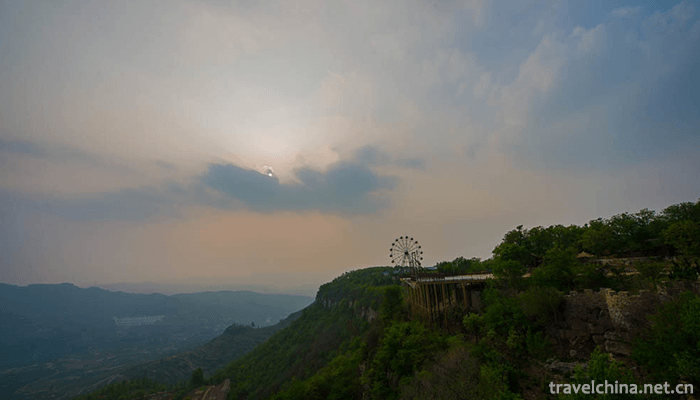
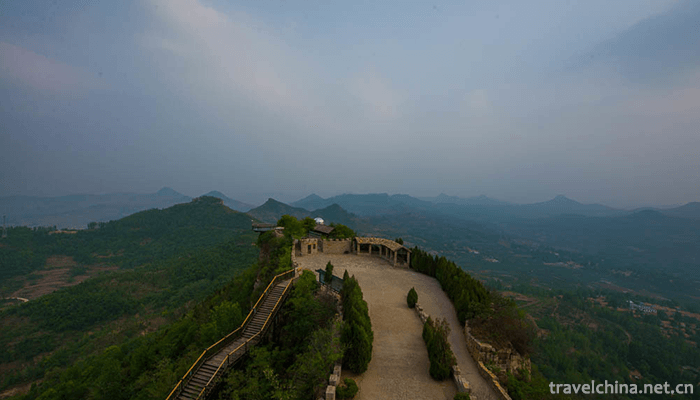
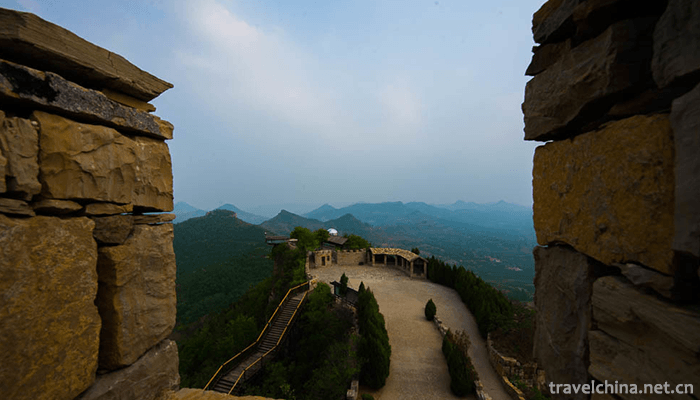
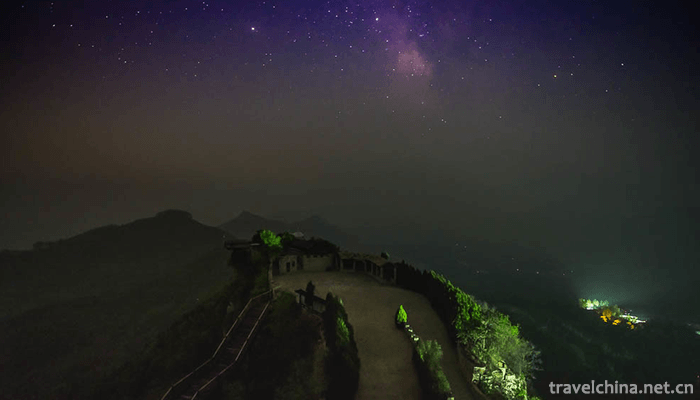

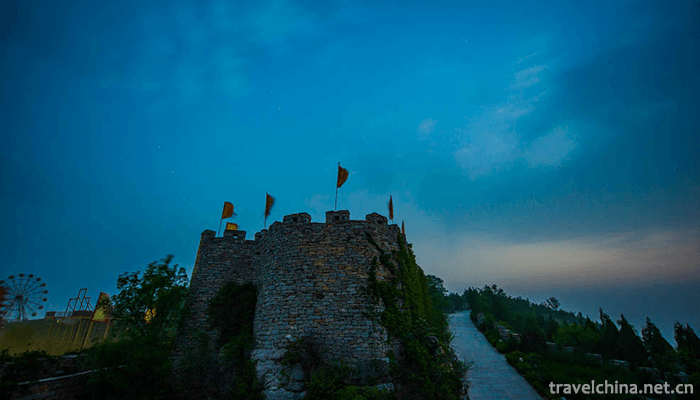
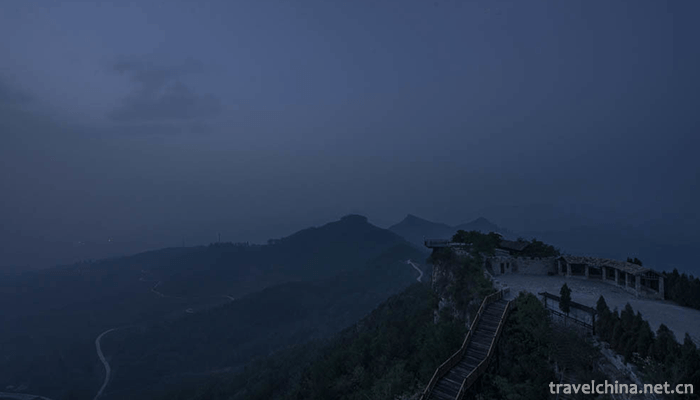
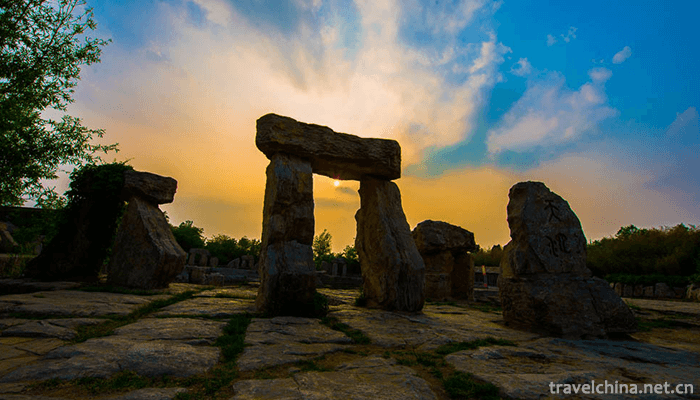
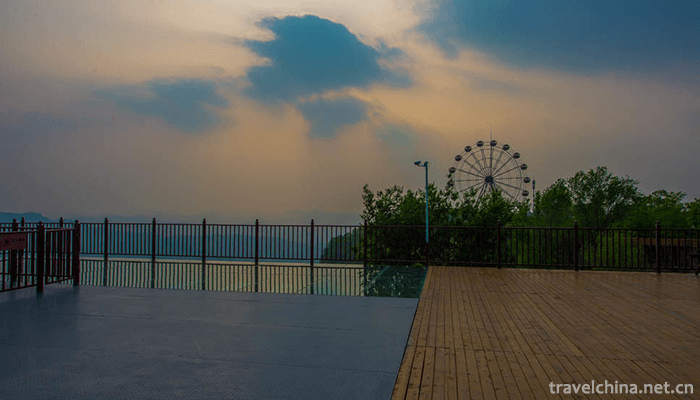
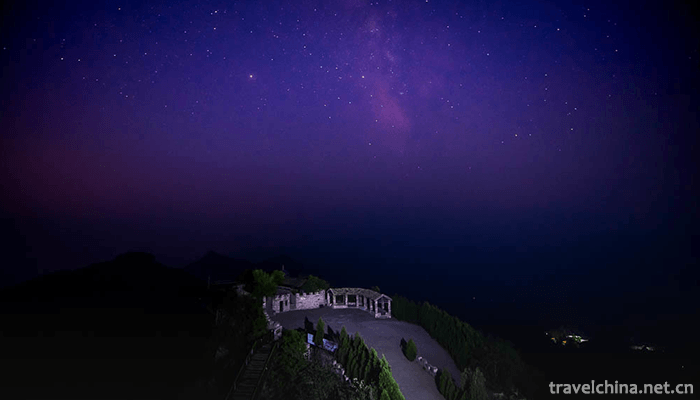
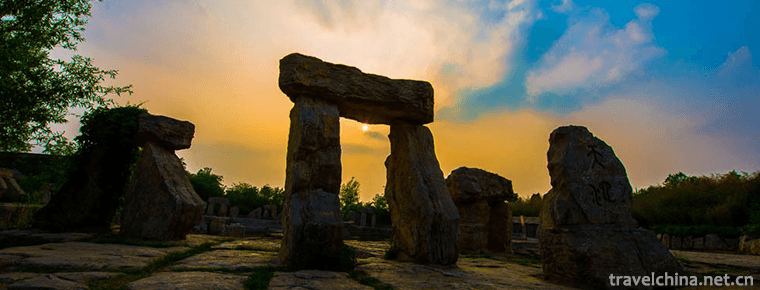
-
2.Three Gorges Dam
The Three Gorges Dam is located in Sandouping Town, Yichang City, Hubei Province, China. It is 38 kilometers from the Gezhouba
Time 2018-11-11 -
3.Xiangsha Bay Scenic Spot in Dalat Banner Ordos
Xiangsha Bay was opened as a tourist attraction in January 1984, listed as a national line scenic spot by the National Tourism Administration in 1991
Time 2018-11-29 -
4.China Yellow River Building
The Yellow River Building of China has the Yellow River China History and Culture Exhibition Hall, the Yellow River Ningxia History and Culture Exhibition Hall, the Yellow River Impression Exhibition
Time 2018-12-22 -
5.Hengdian Film and Television City Scenic Area
Hengdian Film and Television City is a large-scale comprehensive tourist area which integrates film and television, tourism, vacation, leisure and sightseeing. It has been rated as the national AAAAA-
Time 2019-01-13 -
6.Red Beach Scenic Area
Red Beach Scenic Spot is a national 4A class scenic spot and an excellent scenic spot in Liaoning Province. Located in Zhaohuanhe Township, Dawa County, Panjin City, Liaoning Province
Time 2019-01-16 -
7.Hometown of Huang Di
The scenic spot of Huangdi's hometown is located in Xuanyuan Road, Xinzheng City, Zhengzhou City, Henan Province. It is the residence of Xiong clan recorded in the history
Time 2019-01-18 -
8.Little wild goose pagoda
Xiaoyan Pagoda is located in the Jianfu Temple of Anrenfang, Chang'an City, Tang Dynasty (now the southern suburb of Xi'an City, Shaanxi Province), also known as the "Jianfu Temple Pagoda".
Time 2019-02-25 -
9.Taohuawu Wood Engraving New Year Picture
Taohuawu New Year Picture is a Folk Woodcut New Year Picture in the south of the Yangtze River. It was named for its production in the area of Taohuawu in Suzhou. It and the woodcut New Year pictures
Time 2019-06-18 -
10.Huaibei Normal University
Huaibei Normal University, or Huaibei Normal University, is a multi discipline. Provincial Key Universities Selected Infrastructure construction of universities in the central and Western Regions (pha
Time 2019-11-15 -
11.Wenchuan earthquake epicenter site
The earthquake site, located in Yingxiu Town, Wenchuan, Sichuan Province, is open all day.
Time 2020-11-07 -
12.Neijiang in the new China period
From December 5 to 15, 1949, the people of Neijiang and other eight counties declared liberation one after another. In 1950, the office of Zizhong Commissioner moved to Neijiang and was renamed Neijiang special area. It has jurisdiction over Neijiang
Time 2020-12-16